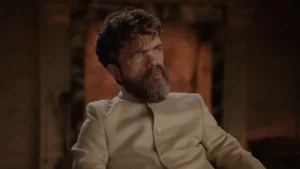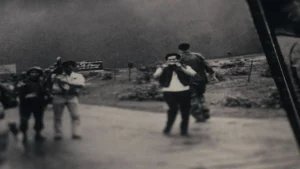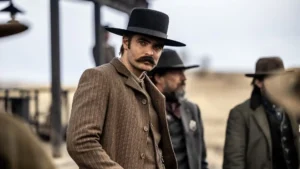Maybe it’s just me, but lately, watching an Adam Sandler movie makes me want to scoop my eyes out with a rusty spoon and fling them at the television like slimy ping pong balls. Is that just me? It certainly isn’t Netflix. As ambivalent towards quality as the streaming service sometimes seems, you don’t ink an eight-picture deal with someone unless there’s an upside to it. Sandy Wexler, the third of those promised feature-length abominations, is a slight step-up from The Ridiculous 6 and The Do-Over, which is a lot like being the best-looking patient in the hospital burns ward. It’s an overlong ode to Sandler’s real-life old-school talent manager, Sandy Wernick, who signed the young comedian at age 22, three years before Saturday Night Live made him a star. After watching it, you have to wonder if Wernick still feels as if those long years of loyalty have been worth it.
Who am I kidding? Sandler is clearly beloved by Wernick and most of Hollywood’s comedic community, which is how he can round up a couple-dozen of its citizens for thoughtless cameos. Sandy Wexler is infested with them. It’s opening is a presumed memorial service for Sandler’s nasal caricature, and it stars a who’s-who of late-night talk show hosts, musicians and comics – Chris Rock, Vanilla Ice, Jimmy Kimmel – who gleefully paint a not-so-flattering portrait of Sandy’s various eccentricities. He’s stupid to the point of incompetence, friendless, naïve, he eats with his mouth open, he lies, he lies about lying, and he serenades every bad joke he hears with a horrific fake cackle and clap. But we’re expected to believe that because he truly cares about his clients, everyone loves him anyway.
The roast format is well-suited to a joke-teller’s tribute, but Sandler’s interpretation seems too cruel and mean-spirited for the underlying affection to poke through. His Sandy is a pathetically parasitic bottom-feeding buffoon, and all the others characters see him that way, including his menagerie of mediocre talent, from a ventriloquist (Kevin James) whose mouth moves when his puppets talks, to a professional wrestler (Terry Crews) who rocks opponents to sleep like giant babies. Another client is a budding actress played by Sandler’s real-life wife, Jackie, who ropes him into babysitting their real-life kids, Sadie and Sunny, while she goes out to auditions. There’s probably a reason that only Sandler’s friends and family seem willing to be tethered to his vehicles these days, but I’ll leave you to guess at what that might be.
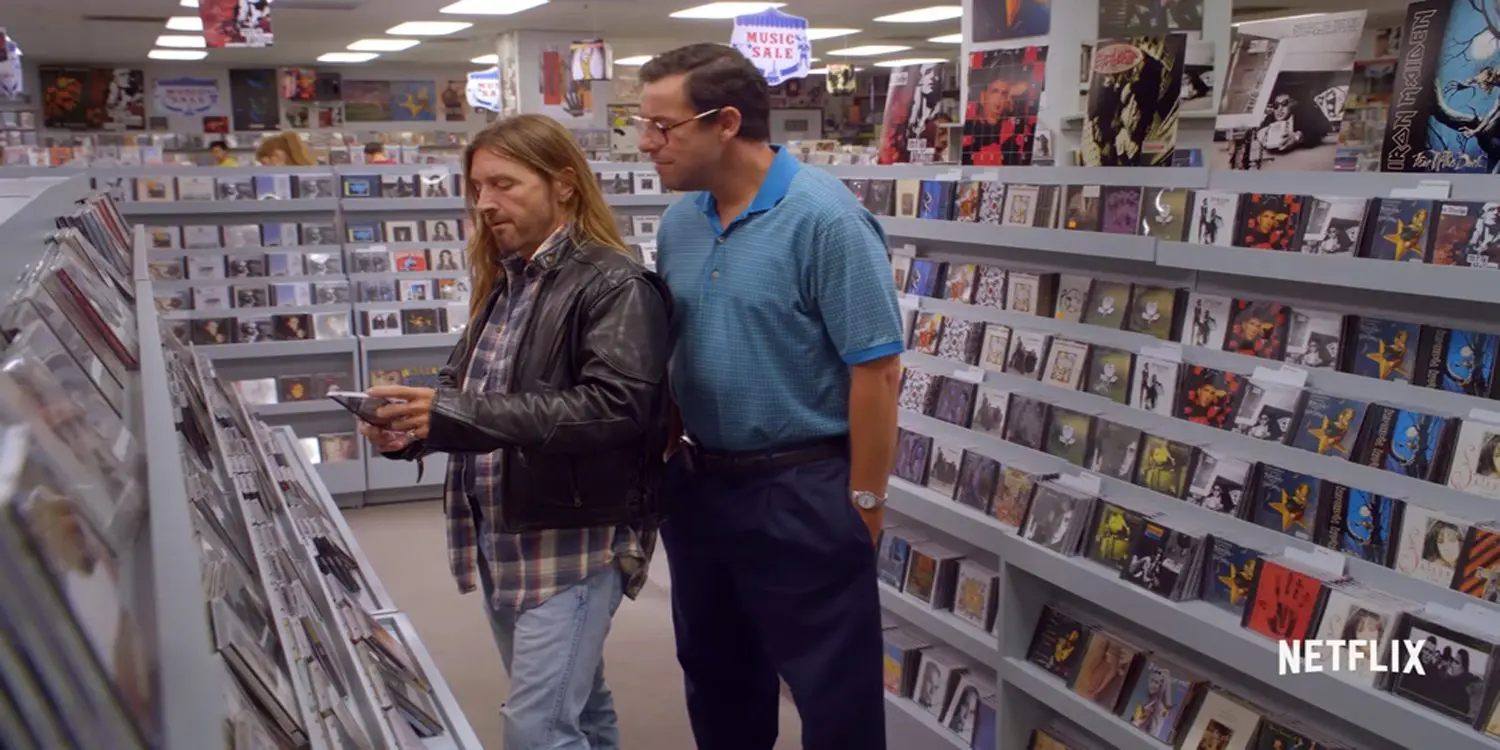
While he’s babysitting at a local theme park, Sandy meets Courtney (Jennifer Hudson), who’s singing her lungs out as the ugly duckling in a silly musical act. Needless to say, given the actress, Courtney is genuinely gifted, and Sandy signs her on the spot. The dramatic heart of Sandy Wexler, as diseased as it might be, is that Sandy isn’t professionally or emotionally equipped to manage real talent. He sabotages all her early attempts at stardom with his relentless stupidity, and his showbusiness contacts are as useless as he is. (One particularly tortuous scene is set in a recording studio, where the engineer “forgets” to record Courtney’s demo three fucking times in a row.) It’s only by chance that he runs into an old acquaintance who just so happens to have made his way into the music business. From that point, Courtney’s talent sells itself.
The tragedy here is supposed to be that Sandy truly wants the best for these people, and that he simply lacks the self-awareness to recognise when his idiocy is hindering them. That desire to be about something immediately positions Sandy Wexler in a slightly different space than Sandler’s last two Netflix offerings, but it’s ambitions are marred by a lot of the same problems. Whether he’s credited or not, Sandler always co-writes these scripts. That’s how whichever character he’s playing ends up entangled in cringingly ill-advised romantic subplots, often with starlets who are decades younger and infinitely better-looking than him. Here, we’re supposed to buy that it’s Jennifer Hudson (one of the movie’s running gags is that she’s a bit of a slapper.) But she has competition from Sandy’s cougar neighbour (Jane Seymour), who tries to seduce him in front of her rich husband (played by the real-life Sandy Wernick). The steady bleeps of his life-support machine are the closest thing this movie has to a laugh track.
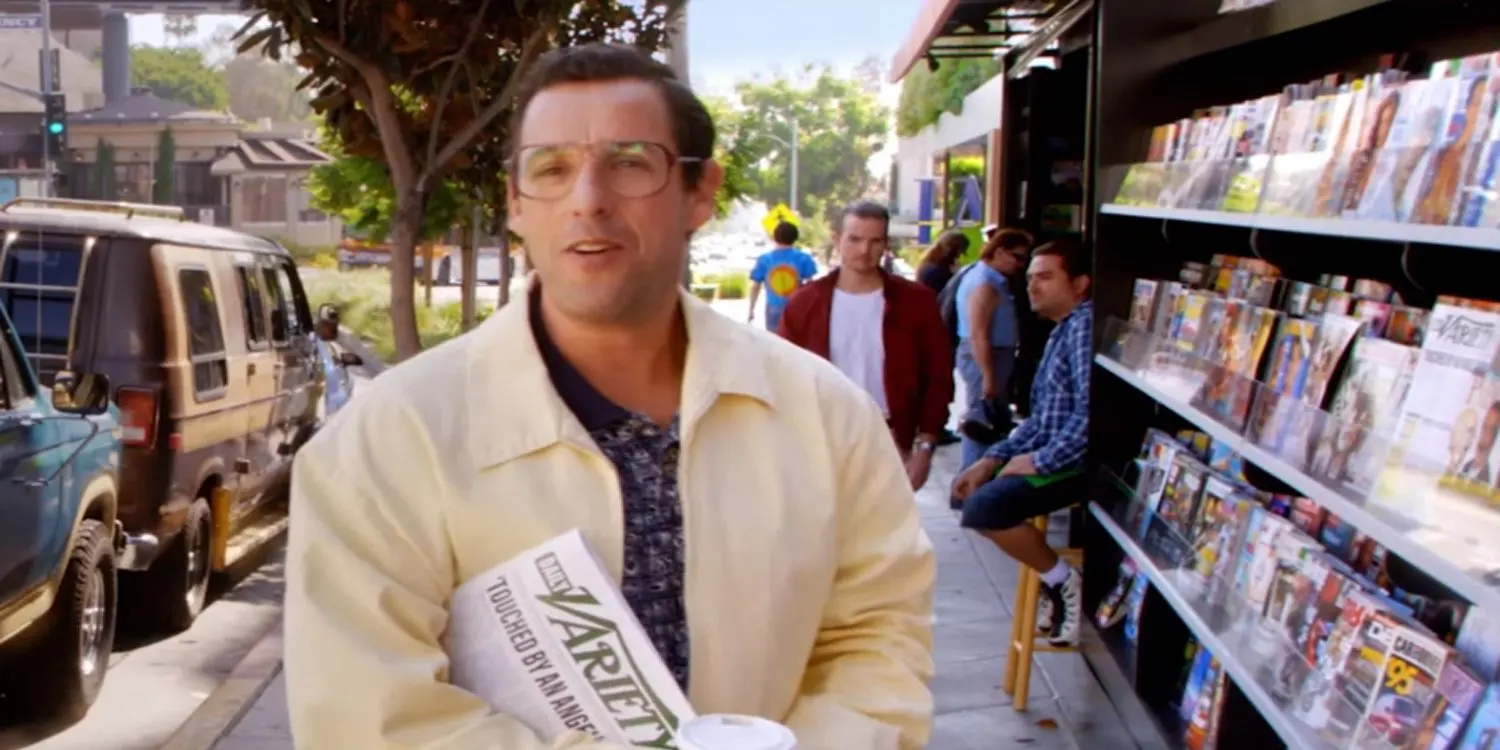
Any laughs to be found here exist in the space that opens up when most of the movie is trying to convince you of Sandy’s ineptitude while the rest of it is so flagrantly rigged in his favour. He’s renting a modest (for L.A.) pool house under full surveillance by his out-of-town Iranian landlord, who won’t let him use the pool, and whose guard dogs habitually chase him when he returns home. That’s funny, for a Sandler movie, which makes it all the more galling when the landlord eventually shows up for a cameo, and you realise he’s played by Rob Schneider in full brownface. Sandler’s jokes have always been morally off-colour, but never literally – until now.
There was a time when Adam Sandler interpreted “feature-length” as an hour-and-a-half. Sandy Wexler runs for 131 agonising minutes, which is a long time for anyone to spend patting themselves on the back. The jokes don’t even end for the credits. During them, Beavis and Butt-Head creator Mike Judge delivers an extended prank call as the pair of MTV misfits. Sandy is daft enough to believe that they’re real kids, and he wants to sign them. This travesty ridicules him until the very end. And with the inevitable five that’ll follow it, Adam Sandler and his cronies continue to ridicule us.


